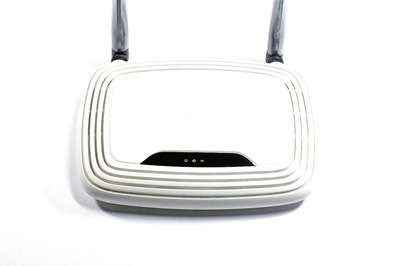
views
What does “updog” mean?
“Updog” is a made-up word used to set up the question “What’s updog?” for a joke. The word “updog” is a play on words and comes from the phrase “What’s up, dog?” (an expression that means “How’s it going, friend?”). To set up the joke, one person will say or ask something using the word “updog.” Someone else will then ask “What’s updog?” in response since it’s not a real word. The jokester usually replies with the punchline “Nothing. What’s up with you?”
The “Updog” Joke, Explained
The setup: “Can you pass me the updog?” Find someone to talk to and make a statement or ask a question with the word “updog” in it. The goal is to make the person you’re pranking have to ask you what “updog” is. You can use any phrase you can think of, but if you’re stuck, here are a few setups for inspiration: “It smells like updog in here.” “You look like updog.” “It’s giving updog.” “Did you notice all that updog?” “Will they be serving updog?”
The reply: “What’s updog?” Once you ask your question, the other person will be confused because they don’t know what “updog” means. Ideally, they’ll then ask you “What’s updog?” to set up your punchline. Since the other person doesn’t know you’re making a joke, they may not say “What’s updog?” exactly. For example, they could say “What do you mean?” or just “What’s that?” Tip: If they say something like “What’s that?”, ask them “What’s what?” to try to get them to say “What’s updog?” again.
The punchline: “Not much. What’s up with you?” Pretend you’re replying to the question “What’s up, dog?” (AKA, “How’s it going, friend?”). Say something short and casual like “Not much,” “Nothing,” or “Can’t complain,” then ask “What’s up with you?” to finish the joke. The other person will realize the play on words you tricked them into and laugh (or maybe groan since this is considered a corny (but classic!) joke).
Is “updog” a real English word?
No, “updog” is nonsense that was made up for the "What's updog?" joke. It’s only purpose is to set up the punchline and the word doesn’t have any real meaning outside of the joke. Even though it’s not real English, the “What’s updog?” joke only works in the English language because of the play on the slang phrase “What’s up, dog?” If you were to do this joke in a different language and borrow the word “updog,” it wouldn’t make sense.
What does “dog” mean in English slang?
“Dog” or “dawg” is another word for friend, buddy, dude, or pal. Calling someone “Dog” is a familiar way to address somebody you know well. For example, you could say “Hey dog, how’s it going?” or “Long time no see, dog!” when you’re greeting a close friend. “Dog” can be intentionally misspelled as “dawg” or “dogg,” too. Using “dog” to mean “friend” probably came from the hip-hop scene before spreading into wider pop culture as hip-hop music became more mainstream.
Where did the “updog” joke come from?
The “updog” joke first appeared online in December of 2000. It’s not totally clear exactly when or how the joke was first conceived (people were probably saying it offline way before 2000). But, the joke made it to the internet on December 6, 2000 in an Ars Technica Forum thread titled “Jokes that make you groan and/or wanna smack your forehead.” Over the next few years, the joke grew more popular online and in TV shows. In 2003, “updog” was added to Urban Dictionary. In 2006, the “updog” joke was featured in an episode of The Office (season 2, episode 13). The cheesy joke became so popular that in 2014, Buzzfeed published a piece called “The 21 Greatest Updogs Of 2014.”
Similar Jokes
Use new nonsense words with the “updog” structure for new punchlines. “Updog” is the classic, but people online have gotten creative and come up with other fake words to make all new jokes. Here are a few gems, but feel free to come up with your own variation! Person A: “Can you pass the hamaphor?”Person B: “What’s a hamaphor?”Person A: “For banging in nails.” A play on the phrase “What’s a hammer for?” Person A: “Can you grab me the henway?”Person B: “What’s a henway?”Person A: “About 3 or 4 pounds.” A play on the phrase “What does a hen weigh?”




















Comments
0 comment